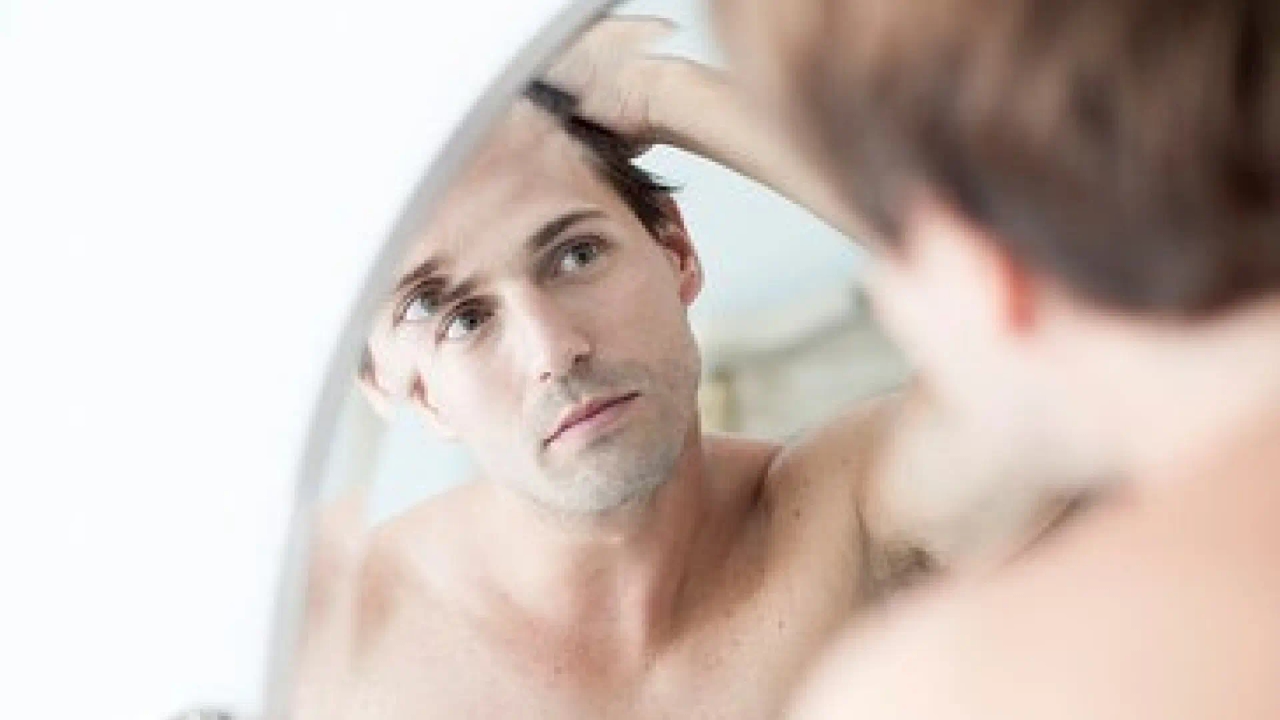This is what your hair says about your health, according to science

Our eyes, our skin, and our nails tell us a lot about our health, but so can our hair . In fact, hair reveals more details than we might think.
Whether your hair is fine, oily, thinning, or frizzy—there are several conditions that can give us clues about some underlying aspect of our health. This Saturday, the Daily Mail published a story in which experts shed light on the relationship between hair and health.
Long and healthyIf your hair is long, thick, and healthy, it's not just your shampoo that's to blame. Dr. Christos Tziotzios , consultant dermatologist at King's College London, says: "Hair is essentially the product of the cells that live in the skin, in a highly complex process involving cell division, which is dependent on and can be affected by various growth factors and nutrients, and influenced by hormones." "A great head of hair can involve a healthy diet to maintain optimal levels of all the necessary vitamins and micronutrients," adds the expert.
And you're not just physically healthy: Dr. Tziotzios points out that healthy hair is also a sign that someone isn't suffering from acute stress. However, length isn't as revealing .
The big difference between people is the length of hair growth, which affects how long someone's hair can grow before it naturally falls out. Desmond Tobin , a hair and hair loss expert at University College Dublin, says: "Some women can only grow hair to their shoulders before it completes its growth cycle and falls out naturally, while others can grow hair to the floor and beyond. This is a matter of genetics and not a sign of their own health."
Fine hairIf your hair is starting to fall out or you notice it is thinning on your scalp, it could mean you have some type of nutrient deficiency.
Tziotzios says hair thinning could be caused by "insufficient nutrients such as copper, zinc, iron, or B vitamins, and oxidative stress." Studies suggest that iron deficiency is the most common dietary problem associated with hair loss.
Studies have also shown that stress increases the rate of hair loss by causing a buildup of the stress hormone cortisol. Likewise, lack of sleep has been shown to accelerate hair loss, so make sure you get enough sleep if you want to maintain a full head of hair.
BaldnessThe most common forms of hair loss that lead to baldness are what doctors call "androgen-induced," meaning they are related to the production of sex hormones.
Male pattern baldness, also known as androgenetic alopecia, is the most common cause of hair loss and is related to an androgen called dihydrotestosterone (DHT).
These hormones are important for normal sexual development, especially during puberty, but DHT also helps control the hair growth cycle.
If too much DHT accumulates in the body, it overstimulates hair follicles, resulting in thinner, shorter hair and, eventually, baldness. Since male pattern baldness is associated with hormonal imbalance, being bald can also mean you're at higher risk for certain health problems.
If you're losing your hair, you may also be at increased risk for coronary heart disease and prostate cancer in men, and polycystic ovary syndrome in women . However, if you suddenly start losing hair at a younger age, it could be because you're under intense physiological stress.
Oily hairExcessively oily or greasy hair is caused by a buildup of sebum, a wax-like compound secreted by special cells in the skin. Normally, this sebum helps keep our skin and hair healthy and moisturized. However, certain conditions can cause the skin to produce excess sebum and generate a buildup of oil, resulting in an irritated, flaky scalp.
If you notice that your hair is excessively oily even with regular washing, it could be a sign of an underlying hormonal problem. For example, an underactive thyroid gland, a condition known as hypothyroidism, leads to increased levels of testosterone production.
Furthermore, new research is beginning to show that oily hair could also be a sign that the scalp microbiome isn't as healthy as it could be. Like the gut, the scalp is home to a diverse ecosystem of bacteria and fungi that help maintain normal, healthy function.
White hairAlthough gray hair is often considered a sign of aging, it isn't necessarily so. In some populations, normal graying of hair can begin as early as age 20 ," says Professor Tobin. "It wouldn't necessarily be considered premature in people of European geographic descent," he adds.
But if your hair suddenly starts to turn gray at a young age, it could be because you have a condition that prevents the formation of melanin , the chemical that gives hair its color.
Furthermore, one of the most common causes of sudden gray hair is smoking. Smokers are more likely to experience early gray hair than nonsmokers, and the risk of developing it increases the longer someone smokes.
Damaged hairIf your hair is noticeably damaged, it's likely a sign that something in your environment is damaging your strands or hair follicles. One possible reason is that you're exposed to high levels of pollution. Organic compounds formed when burning coal or oil can contaminate your hair from the environment.
When these compounds are exposed to ultraviolet light, they initiate a chemical process that degrades the DNA, proteins, and cell membranes of hair strands. Over time, this can cause hair damage or even discoloration.
Another common cause of hair damage is swimming, especially in chlorinated pools. Chlorine penetrates deep into the hair, breaking down the keratin that gives it its strength. At the same time, repeated exposure to water creates stress and friction, which mechanically damages the hair.
20minutos




